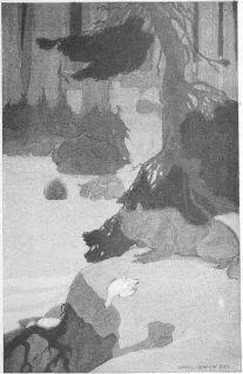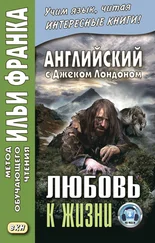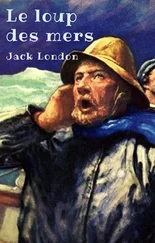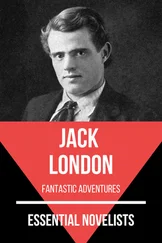Jack London - Love of Life
Здесь есть возможность читать онлайн «Jack London - Love of Life» весь текст электронной книги совершенно бесплатно (целиком полную версию без сокращений). В некоторых случаях можно слушать аудио, скачать через торрент в формате fb2 и присутствует краткое содержание. Жанр: Классическая проза, на английском языке. Описание произведения, (предисловие) а так же отзывы посетителей доступны на портале библиотеки ЛибКат.
- Название:Love of Life
- Автор:
- Жанр:
- Год:неизвестен
- ISBN:нет данных
- Рейтинг книги:4 / 5. Голосов: 1
-
Избранное:Добавить в избранное
- Отзывы:
-
Ваша оценка:
- 80
- 1
- 2
- 3
- 4
- 5
Love of Life: краткое содержание, описание и аннотация
Предлагаем к чтению аннотацию, описание, краткое содержание или предисловие (зависит от того, что написал сам автор книги «Love of Life»). Если вы не нашли необходимую информацию о книге — напишите в комментариях, мы постараемся отыскать её.
Love of Life — читать онлайн бесплатно полную книгу (весь текст) целиком
Ниже представлен текст книги, разбитый по страницам. Система сохранения места последней прочитанной страницы, позволяет с удобством читать онлайн бесплатно книгу «Love of Life», без необходимости каждый раз заново искать на чём Вы остановились. Поставьте закладку, и сможете в любой момент перейти на страницу, на которой закончили чтение.
Интервал:
Закладка:
It was at a council, one night, in the big igloo of Klosh-Kwan, the chief, that Keesh showed the blood that ran in his veins and the manhood that stiffened his back. With the dignity of an elder, he rose to his feet, and waited for silence amid the babble of voices.
“It is true that meat be apportioned me and mine,” he said. “But it is ofttimes old and tough, this meat, and, moreover, it has an unusual quantity of bones.”
The hunters, grizzled and gray, and lusty and young, were aghast. The like had never been known before. A child, that talked like a grown man, and said harsh things to their very faces!
But steadily and with seriousness, Keesh went on. “For that I know my father, Bok, was a great hunter, I speak these words. It is said that Bok brought home more meat than any of the two best hunters, that with his own hands he attended to the division of it, that with his own eyes he saw to it that the least old woman and the last old man received fair share.”
“Na! Na!” the men cried. “Put the child out!” “Send him off to bed!” “He is no man that he should talk to men and graybeards!”
He waited calmly till the uproar died down.
“Thou hast a wife, Ugh-Gluk,” he said, “and for her dost thou speak. And thou, too, Massuk, a mother also, and for them dost thou speak. My mother has no one, save me; wherefore I speak. As I say, though Bok be dead because he hunted over-keenly, it is just that I, who am his son, and that Ikeega, who is my mother and was his wife, should have meat in plenty so long as there be meat in plenty in the tribe. I, Keesh, the son of Bok, have spoken.”
He sat down, his ears keenly alert to the flood of protest and indignation his words had created.
“That a boy should speak in council!” old Ugh-Gluk was mumbling.
“Shall the babes in arms tell us men the things we shall do?” Massuk demanded in a loud voice. “Am I a man that I should be made a mock by every child that cries for meat?”
The anger boiled a white heat. They ordered him to bed, threatened that he should have no meat at all, and promised him sore beatings for his presumption. Keesh’s eyes began to flash, and the blood to pound darkly under his skin. In the midst of the abuse he sprang to his feet.
“Hear me, ye men!” he cried. “Never shall I speak in the council again, never again till the men come to me and say, ‘It is well, Keesh, that thou shouldst speak, it is well and it is our wish.’ Take this now, ye men, for my last word. Bok, my father, was a great hunter. I, too, his son, shall go and hunt the meat that I eat. And be it known, now, that the division of that which I kill shall be fair. And no widow nor weak one shall cry in the night because there is no meat, when the strong men are groaning in great pain for that they have eaten overmuch. And in the days to come there shall be shame upon the strong men who have eaten overmuch. I, Keesh, have said it!”
Jeers and scornful laughter followed him out of the igloo , but his jaw was set and he went his way, looking neither to right nor left.
The next day he went forth along the shore-line where the ice and the land met together. Those who saw him go noted that he carried his bow, with a goodly supply of bone-barbed arrows, and that across his shoulder was his father’s big hunting-spear. And there was laughter, and much talk, at the event. It was an unprecedented occurrence. Never did boys of his tender age go forth to hunt, much less to hunt alone. Also were there shaking of heads and prophetic mutterings, and the women looked pityingly at Ikeega, and her face was grave and sad.
“He will be back ere long,” they said cheeringly.
“Let him go; it will teach him a lesson,” the hunters said. “And he will come back shortly, and he will be meek and soft of speech in the days to follow.”
But a day passed, and a second, and on the third a wild gale blew, and there was no Keesh. Ikeega tore her hair and put soot of the seal-oil on her face in token of her grief; and the women assailed the men with bitter words in that they had mistreated the boy and sent him to his death; and the men made no answer, preparing to go in search of the body when the storm abated.
Early next morning, however, Keesh strode into the village. But he came not shamefacedly. Across his shoulders he bore a burden of fresh-killed meat. And there was importance in his step and arrogance in his speech.
“Go, ye men, with the dogs and sledges, and take my trail for the better part of a day’s travel,” he said. “There is much meat on the ice-a she-bear and two half-grown cubs.”
Ikeega was overcome with joy, but he received her demonstrations in manlike fashion, saying: “Come, Ikeega, let us eat. And after that I shall sleep, for I am weary.”
And he passed into their igloo and ate profoundly, and after that slept for twenty running hours.
There was much doubt at first, much doubt and discussion. The killing of a polar bear is very dangerous, but thrice dangerous is it, and three times thrice, to kill a mother bear with her cubs. The men could not bring themselves to believe that the boy Keesh, single-handed, had accomplished so great a marvel. But the women spoke of the fresh-killed meat he had brought on his back, and this was an overwhelming argument against their unbelief. So they finally departed, grumbling greatly that in all probability, if the thing were so, he had neglected to cut up the carcasses. Now in the north it is very necessary that this should be done as soon as a kill is made. If not, the meat freezes so solidly as to turn the edge of the sharpest knife, and a three-hundred-pound bear, frozen stiff, is no easy thing to put upon a sled and haul over the rough ice. But arrived at the spot, they found not only the kill, which they had doubted, but that Keesh had quartered the beasts in true hunter fashion, and removed the entrails.
Thus began the mystery of Keesh, a mystery that deepened and deepened with the passing of the days. His very next trip he killed a young bear, nearly full-grown, and on the trip following, a large male bear and his mate. He was ordinarily gone from three to four days, though it was nothing unusual for him to stay away a week at a time on the ice-field. Always he declined company on these expeditions, and the people marvelled. “How does he do it?” they demanded of one another. “Never does he take a dog with him, and dogs are of such great help, too.”
“Why dost thou hunt only bear?” Klosh-Kwan once ventured to ask him.
And Keesh made fitting answer. “It is well known that there is more meat on the bear,” he said.
But there was also talk of witchcraft in the village. “He hunts with evil spirits,” some of the people contended, “wherefore his hunting is rewarded. How else can it be, save that he hunts with evil spirits?”
“Mayhap they be not evil, but good, these spirits,” others said. “It is known that his father was a mighty hunter. May not his father hunt with him so that he may attain excellence and patience and understanding? Who knows?”
None the less, his success continued, and the less skilful hunters were often kept busy hauling in his meat. And in the division of it he was just. As his father had done before him, he saw to it that the least old woman and the last old man received a fair portion, keeping no more for himself than his needs required. And because of this, and of his merit as a hunter, he was looked upon with respect, and even awe; and there was talk of making him chief after old Klosh-Kwan. Because of the things he had done, they looked for him to appear again in the council, but he never came, and they were ashamed to ask.
“I am minded to build me an igloo ,” he said one day to Klosh-Kwan and a number of the hunters. “It shall be a large igloo , wherein Ikeega and I can dwell in comfort.”
Читать дальшеИнтервал:
Закладка:
Похожие книги на «Love of Life»
Представляем Вашему вниманию похожие книги на «Love of Life» списком для выбора. Мы отобрали схожую по названию и смыслу литературу в надежде предоставить читателям больше вариантов отыскать новые, интересные, ещё непрочитанные произведения.
Обсуждение, отзывы о книге «Love of Life» и просто собственные мнения читателей. Оставьте ваши комментарии, напишите, что Вы думаете о произведении, его смысле или главных героях. Укажите что конкретно понравилось, а что нет, и почему Вы так считаете.












